El Esequibo es de Venezuela: una disputa territorial que ha durado más de un siglo
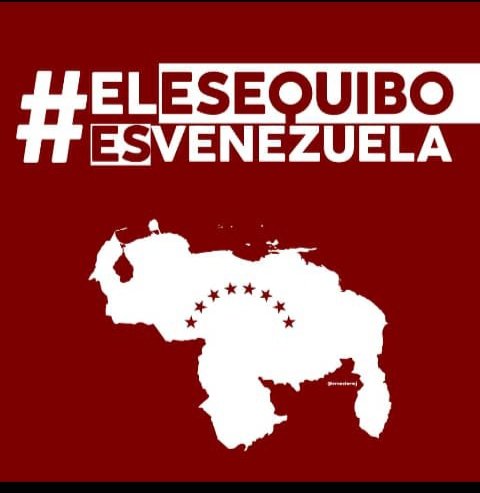
Desde hace más de un siglo, Venezuela y Guyana han estado en desacuerdo sobre la propiedad de una región conocida como el Esequibo. La disputa territorial ha sido un tema de gran importancia para ambos países, y ha generado tensiones políticas y diplomáticas a lo largo de los años. En este artículo, analizaremos la historia de esta disputa, los argumentos de ambos lados y los posibles caminos a seguir para resolver este conflicto.
Antes de profundizar en la disputa actual, es importante comprender la historia del Esequibo y cómo se convirtió en un tema de controversia entre Venezuela y Guyana. Durante la época colonial, la región del Esequibo fue controlada por los holandeses, quienes establecieron plantaciones de azúcar y una colonia conocida como Guayana Holandesa. Después de la independencia de Venezuela en 1821, el país reclamó la región como parte de su territorio. Sin embargo, la posesión efectiva del territorio quedó en manos de los holandeses, y posteriormente fue transferida a los británicos cuando estos ocuparon la Guayana Holandesa en 1814.
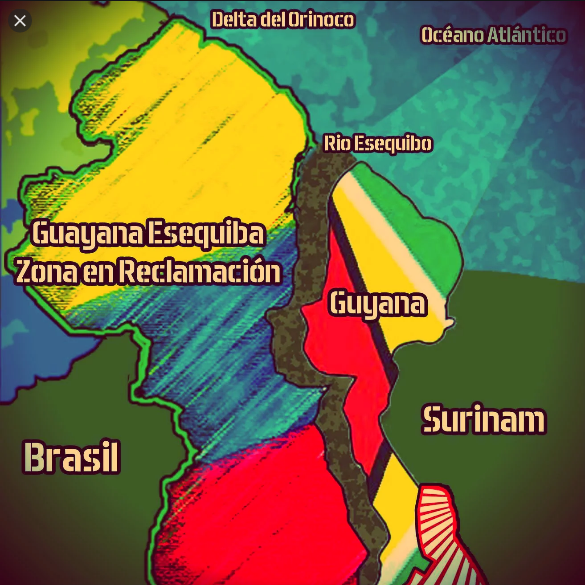
En 1966, Guyana logró su independencia del Reino Unido y se convirtió en un estado soberano. Venezuela, sin embargo, no reconoció la independencia de Guyana y continuó manteniendo su reclamación sobre el Esequibo. Desde entonces, la disputa territorial ha sido un tema importante en las relaciones entre los dos países, y ha sido objeto de negociaciones bilaterales y multilaterales.
Los argumentos de Venezuela y Guyana son fundamentales para comprender el conflicto. Venezuela sostiene que el Esequibo es parte de su territorio histórico, basándose en la posesión efectiva que tuvo de la región durante la época colonial y en la falta de un acuerdo final entre las partes involucradas en la transferencia del territorio a los británicos. Por otro lado, Guyana sostiene que el Esequibo es parte de su territorio, argumentando que el territorio fue transferido a los británicos de manera legal y que ha ejercido soberanía sobre la región desde su independencia.
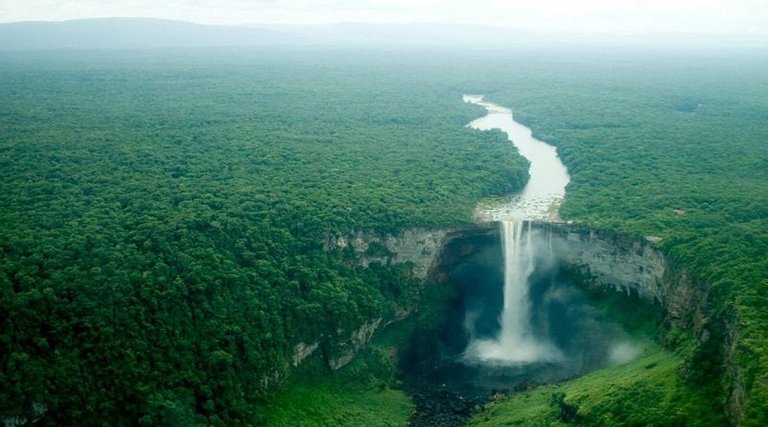
La disputa territorial ha sido un tema de tensión política y diplomática entre los dos países. En 2015, el presidente de Venezuela, Nicolás Maduro, emitió un decreto en el que reafirmó la soberanía de Venezuela sobre el Esequibo y ordenó la creación de una Zona de Defensa Integral para proteger la región. Esta medida fue criticada por Guyana y otros países de la región, quienes la consideraron una violación del derecho internacional. Además, el gobierno de Guyana ha llevado el caso a la Corte Internacional de Justicia, solicitando una resolución del conflicto y una confirmación de la soberanía de Guyana sobre la región del Esequibo.
La disputa territorial entre Venezuela y Guyana ha sido un tema complejo y difícil de resolver. Sin embargo, existen posibles soluciones a la controversia que podrían beneficiar a ambas partes. Una posible solución es la negociación directa entre los dos países, en la que se establezcan acuerdos de cooperación en áreas como la explotación de recursos naturales, la inversión y el comercio. Otra posible solución es recurrir a la mediación internacional, ya sea a través de la Organización de los Estados Americanos (OEA) o de la Corte Internacional de Justicia. La mediación podría ser una forma efectiva de resolver la disputa, siempre y cuando ambas partes estén dispuestas a aceptar una resolución justa y equitativa.
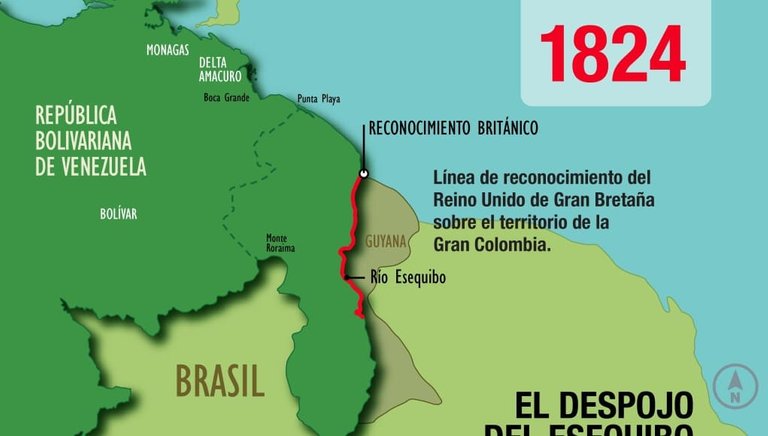
En cualquier caso, es importante que Venezuela y Guyana trabajen juntos para encontrar una solución pacífica y justa a la disputa territorial del Esequibo. La región es rica en recursos naturales, incluyendo petróleo, gas y oro, y su desarrollo podría tener un gran impacto económico en ambos países. Además, la resolución del conflicto podría ayudar a mejorar las relaciones entre los dos países y a fomentar la cooperación en la región.
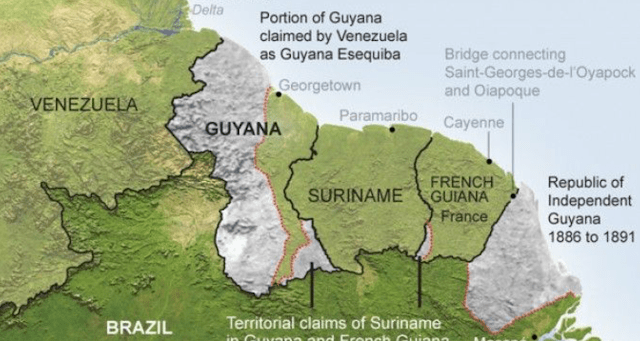
En conclusión, la disputa territorial del Esequibo ha sido un tema de controversia entre Venezuela y Guyana desde hace más de un siglo. Aunque los argumentos de ambos lados son sólidos, es importante que ambas partes trabajen juntas para encontrar una solución pacífica y justa al conflicto. La mediación internacional o la negociación directa podrían ser soluciones efectivas, siempre y cuando ambas partes estén dispuestas a aceptar una resolución justa y equitativa. El Esequibo es un territorio rico en recursos naturales, y su desarrollo podría tener un gran impacto económico en ambos países. Resolver la disputa no solo ayudaría a mejorar las relaciones entre Venezuela y Guyana, sino también a fomentar la cooperación en la región.
====================
The Essequibo is from Venezuela: a territorial dispute that has lasted more than a century

For more than a century, Venezuela and Guyana have been at loggerheads over ownership of a region known as the Essequibo. The territorial dispute has been an issue of great importance for both countries, and has generated political and diplomatic tensions over the years. In this article, we will analyze the history of this dispute, the arguments on both sides, and the possible paths to follow to resolve this conflict.
Before delving into the current dispute, it is important to understand the history of the Essequibo and how it became a subject of contention between Venezuela and Guyana. During colonial times, the Essequibo region was controlled by the Dutch, who established sugar plantations and a colony known as Dutch Guiana. After Venezuela's independence in 1821, the country claimed the region as part of its territory. However, effective possession of the territory remained in the hands of the Dutch, and it was later transferred to the British when they occupied Dutch Guiana in 1814.

In 1966, Guyana achieved its independence from the United Kingdom and became a sovereign state. Venezuela, however, did not recognize Guyana's independence and continued to maintain its claim to the Essequibo. Since then, the territorial dispute has been an important issue in the relations between the two countries, and has been the subject of bilateral and multilateral negotiations.
The arguments of Venezuela and Guyana are fundamental to understanding the conflict. Venezuela maintains that the Essequibo is part of its historical territory, based on its effective possession of the region during colonial times and the lack of a final agreement between the parties involved in the transfer of the territory to the British. On the other hand, Guyana maintains that the Essequibo is part of its territory, arguing that the territory was legally transferred to the British and that it has exercised sovereignty over the region since its independence.

The territorial dispute has been a subject of political and diplomatic tension between the two countries. In 2015, Venezuelan President Nicolás Maduro issued a decree reaffirming Venezuela's sovereignty over the Essequibo and ordering the creation of an Integral Defense Zone to protect the region. This measure was criticized by Guyana and other countries in the region, who considered it a violation of international law. In addition, the Guyanese government has taken the case to the International Court of Justice, seeking a resolution of the conflict and a confirmation of Guyana's sovereignty over the Essequibo region.
The territorial dispute between Venezuela and Guyana has been a complex and difficult issue to resolve. However, there are possible solutions to the dispute that could benefit both parties. One possible solution is direct negotiation between the two countries, in which cooperation agreements are established in areas such as the exploitation of natural resources, investment and trade. Another possible solution is to resort to international mediation, either through the Organization of American States (OAS) or the International Court of Justice. Mediation may be an effective way to resolve the dispute, as long as both parties are willing to accept a fair and equitable resolution.

In any case, it is important that Venezuela and Guyana work together to find a peaceful and just solution to the Essequibo territorial dispute. The region is rich in natural resources, including oil, gas and gold, and its development could have a major economic impact on both countries. In addition, the resolution of the conflict could help improve relations between the two countries and foster cooperation in the region.

In conclusion, the Essequibo territorial dispute has been a subject of controversy between Venezuela and Guyana for more than a century. Although I argue themSince the nts on both sides are strong, it is important that both sides work together to find a peaceful and just solution to the conflict. International mediation or direct negotiation could be effective solutions, as long as both parties are willing to accept a fair and equitable resolution. The Essequibo is a territory rich in natural resources, and its development could have a great economic impact in both countries. Resolving the dispute would not only help improve relations between Venezuela and Guyana, but also foster cooperation in the region.